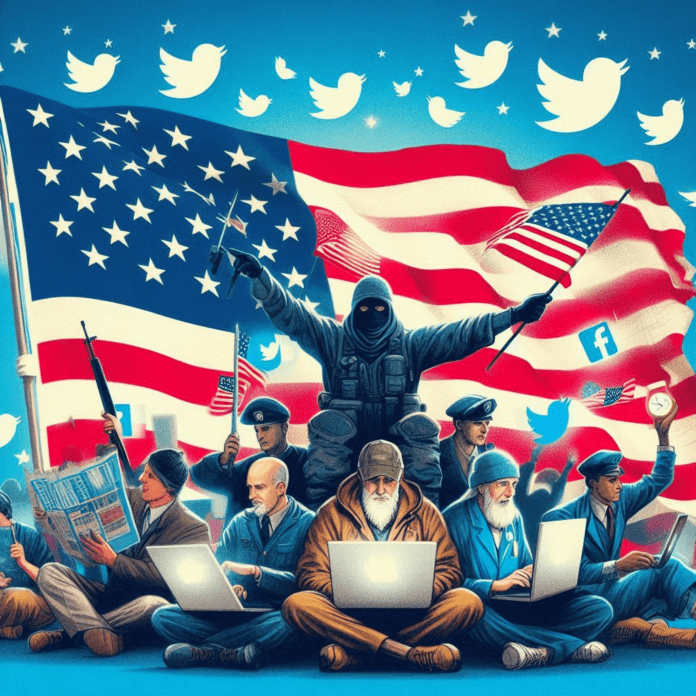During the height of the COVID-19 pandemic, the U.S. military initiated a covert operation to counteract China’s growing influence in the Philippines by undermining the credibility of Chinese vaccines and medical supplies. This secret campaign, aimed at spreading propaganda against China was successful in raising doubts about the safety and efficacy of Chinese aid, has been uncovered by a Reuters investigation.
Operation Overview
The U.S. military’s campaign began in the spring of 2020, expanding beyond Southeast Asia to Central Asia and the Middle East before being terminated in mid-2021. Utilizing fake social media accounts that impersonated Filipinos, the operation propagated anti-vaccine sentiments and disparaged the quality of Chinese medical supplies such as face masks, test kits, and the Sinovac vaccine. These efforts centered around the hashtag #Chinaangvirus (Tagalog for “China is the virus”), with posts alleging that Chinese vaccines and medical supplies were fake and untrustworthy.
Extent and Impact
Reuters identified at least 300 accounts on X (formerly Twitter) that matched descriptions from former U.S. military officials. These accounts, mostly created in the summer of 2020, spread messages like “COVID came from China and the VACCINE also came from China, don’t trust China!” The operation aimed to exploit existing skepticism towards vaccines in the Philippines, partly fueled by previous controversies over a Dengue fever vaccine.
The campaign contributed to widespread distrust of the Sinovac vaccine, which was the primary vaccine available in the Philippines for about a year until U.S.-made vaccines became more accessible in early 2022. By mid-2021, only 2.1 million of the Philippines’ 114 million citizens were fully vaccinated, far below the government’s target of 70 million.
Public and Official Reactions
Public health experts and aid workers in the Philippines expressed outrage upon learning of the U.S. campaign, which they believe endangered lives for geopolitical gain. Dr. Nina Castillo-Carandang, a former adviser to the World Health Organization, condemned the effort, highlighting the desperation of Filipinos during the pandemic. The campaign also exacerbated existing mistrust towards China due to its aggressive actions in the South China Sea.
Former Philippines President Rodrigo Duterte’s frustration over low vaccination rates led him to threaten the arrest of individuals who refused to be inoculated. Despite these threats, public skepticism remained high, partly due to the U.S. military’s disinformation efforts.
Diplomatic and Strategic Context
The campaign was part of a broader effort by the U.S. military to counter Chinese influence in the developing world. Senior military officers and the Pentagon viewed China’s COVID-19 diplomacy as a threat to U.S. interests, particularly in regions like Southeast Asia. The Pentagon’s actions were driven by concerns that China’s vaccine diplomacy was swaying countries like the Philippines towards Beijing.
Despite objections from senior U.S. diplomats in Southeast Asia, who argued that the health crisis was not the time for psychological operations, the Pentagon proceeded with the campaign. This decision was facilitated by a secret order signed by then-Secretary of Defense Mark Esper in 2019, which prioritized competition with China and Russia to the level of active combat, allowing military commanders to conduct psyops without needing embassy approval.
You may like to read about
CityMD Settles $12 Million for Alleged False Claims to COVID-19 Uninsured Program
Global Expansion and Ethical Concerns
The U.S. military’s propaganda efforts were not confined to the Philippines. The campaign expanded to other regions, including the Middle East and Central Asia, where it targeted Muslim populations with false claims that Chinese vaccines contained pork gelatin, which would make them forbidden under Islamic law. This messaging sought to amplify existing fears and uncertainties about the vaccines.
Social media companies like X eventually identified and removed the fake accounts used in the campaign, recognizing them as part of a coordinated bot operation. The exposure of the campaign led to widespread condemnation from public health experts, who argued that it undermined global vaccination efforts and public trust in health initiatives.
Historical Background of Propaganda Against China
The U.S. military’s use of psychological operations has a long history, dating back to World War II. These operations have evolved over time, with modern tactics including the use of social media to influence public opinion. The pandemic provided a new impetus for such operations, as China’s early efforts to shift the blame for the virus’s origins to the U.S. and its subsequent vaccine diplomacy prompted the Pentagon to respond with its own disinformation campaign.
You may also like to read
Minnesota Fraud Uncovered : Massive Scheme to Defraud COVID-19 Pandemic Food Program
The U.S. response was part of a broader strategy to counter Chinese influence, which had been growing through its Belt and Road Initiative and other global investments. The campaign was seen as a necessary countermeasure to China’s increasing geopolitical clout, particularly in regions where the U.S. had strategic interests.


